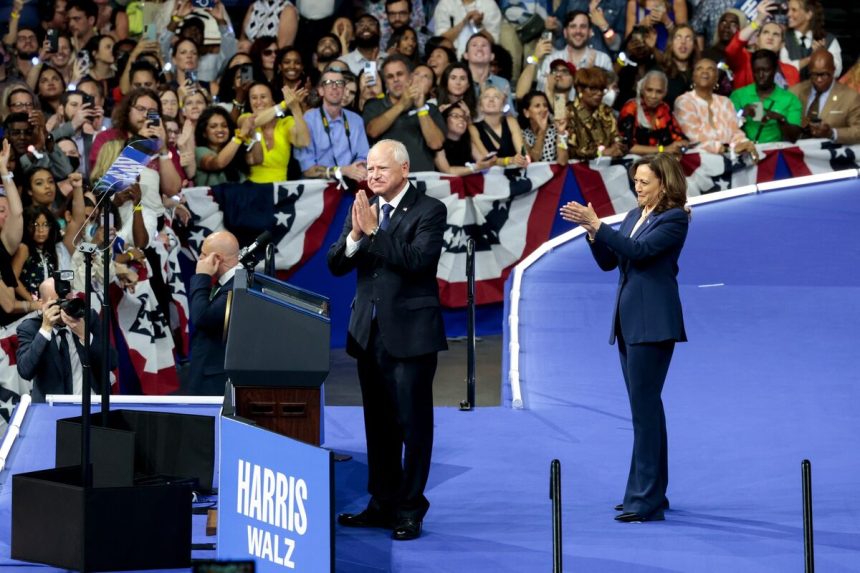Beijing, August 2024 – The announcement of Tim Walz as Kamala Harris’ running mate in the 2024 U.S. presidential election has sparked significant reactions across the globe, including from China. As the second-largest economy in the world and a key player in global geopolitics, China’s response to the U.S. election dynamics is closely watched. The selection of Walz, a seasoned politician with a focus on domestic issues, has led to a mix of cautious optimism and strategic analysis within Chinese political and media circles.
Initial Reactions from Chinese Officials
Chinese officials have responded to Harris’ choice of Tim Walz with cautious diplomacy. The Chinese Foreign Ministry issued a brief statement noting that China respects the internal political decisions of other nations and is committed to maintaining stable and constructive relations with the United States, regardless of the outcome of the U.S. presidential election.
Behind the official stance, however, there is a sense of curiosity about how a potential Harris-Walz administration might impact U.S.-China relations. Walz, the current governor of Minnesota, is known for his focus on domestic economic policies, infrastructure, and education. Unlike Harris, who has been vocal about foreign policy issues, particularly regarding China, Walz has not been a prominent figure in the discourse on U.S.-China relations.
Chinese Media Commentary
Chinese state-run media have offered a more detailed analysis of Walz’s selection. Commentators have highlighted that Tim Walz’s political career has largely centered on domestic issues, which could signal a Harris administration’s potential prioritization of internal affairs over aggressive foreign policy moves. This perspective is seen as cautiously optimistic in China, where the government’s preference is often for a U.S. leadership that is more focused on domestic challenges than on confronting China on the international stage.
However, Chinese media have also expressed concern that Harris’ well-known stance on human rights issues and her criticism of China’s policies in Xinjiang, Hong Kong, and the South China Sea could still dominate the administration’s foreign policy, regardless of Walz’s domestic focus. There is speculation that Walz’s role might be to balance Harris’ more assertive approach with a focus on cooperation in areas such as trade and climate change.
Strategic Implications for U.S.-China Relations
The selection of Walz could have several implications for U.S.-China relations. On one hand, his domestic focus might lead to a more inward-looking U.S. administration, potentially reducing the emphasis on confrontational policies toward China. On the other hand, Harris’ track record suggests that China should prepare for continued scrutiny and pressure on issues like human rights and geopolitical influence.
From a strategic standpoint, Chinese analysts are likely assessing whether Walz’s presence on the ticket could lead to more pragmatic and less ideologically driven U.S. policies. The hope in Beijing might be for a Harris-Walz administration that is more interested in negotiation and economic cooperation than in escalating tensions.
Conclusion
China’s response to Kamala Harris choosing Tim Walz as her running mate is marked by a mix of cautious optimism and strategic concern. While Walz’s domestic focus is seen as a potentially stabilizing factor in U.S.-China relations, Harris’ well-established positions on key issues suggest that the bilateral relationship could remain challenging. As the U.S. election approaches, China will continue to closely monitor developments, preparing for various scenarios that could impact its complex relationship with the United States.


